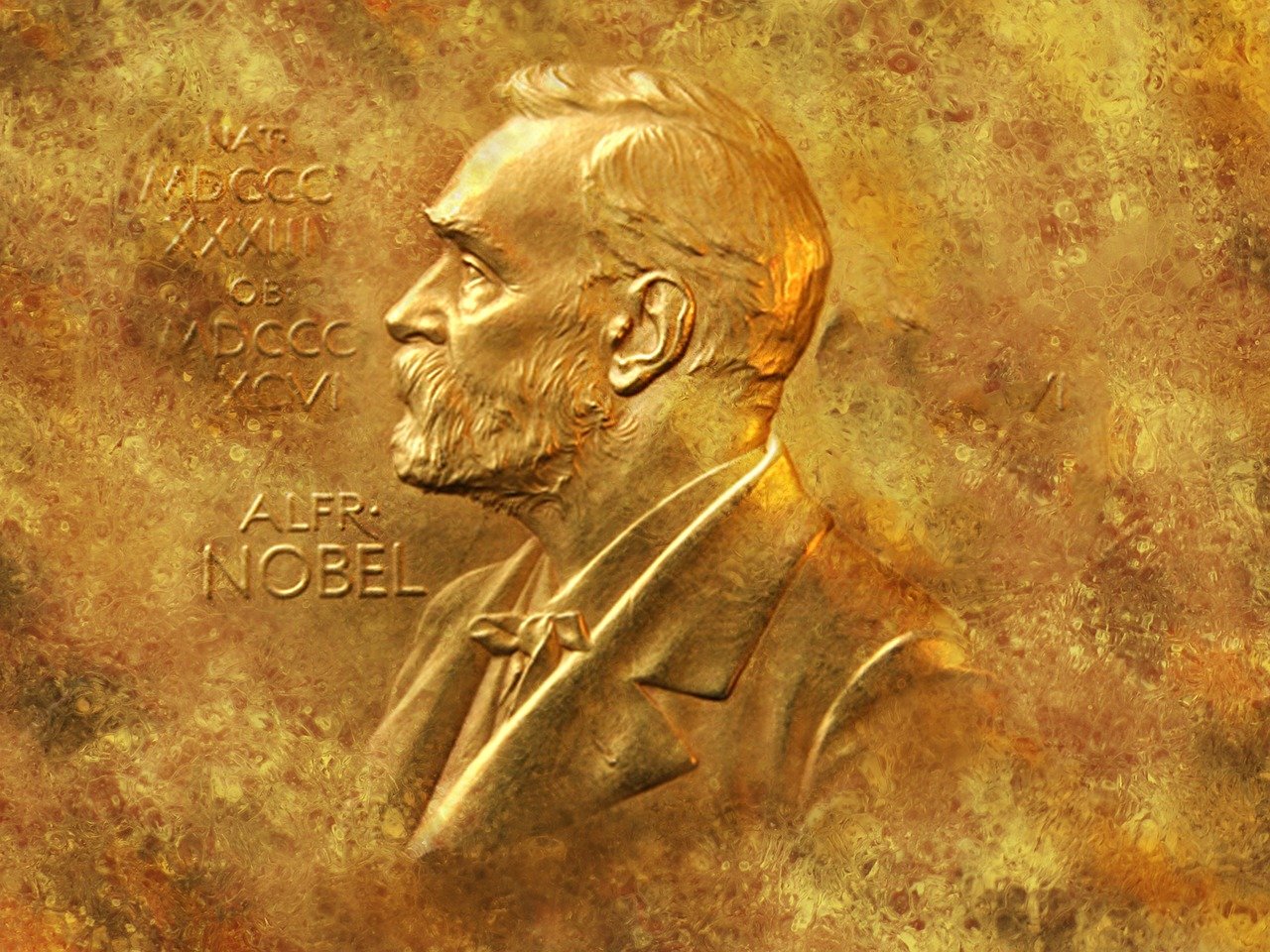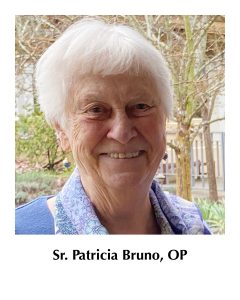- All
- Wisdom
- We Stand on Their Shoulders
- Vocation
- Uncategorized
- Stories Seldom Heard
- Spirituality
- Social Justice
- Prayer
- Peace
- Oneness
- Love
- Letting Go
- Lent
- Joy
- Inspirational Images
- Hope / Healing
- Holy Week
- Gratefulness
- God's Presence
- General News Stories
- Forgiveness
- Finding God
- Faith
- Easter
- Dominican Saints
- Discipleship
- Courage
- Christmas
- Catholic Sisters Week
- Care of the Earth
- Blessing
- Beauty
- Advent
- #justiceOPportunity
Psalm 139
Sr. Patricia Bruno, OP

268th Edition November 2021
Psalm 139
 Welcome to Stories Seldom Heard. This month of November is filled with memories. We celebrate All Saints Day and All Souls Day. It is also a reminder for us to think about those who are living who are bearers of peace and truth, compassion and justice. There are many people and places throughout the world on which we could focus our attention. One of my traditions at this time of year is to turn towards Oslo, Norway.
Welcome to Stories Seldom Heard. This month of November is filled with memories. We celebrate All Saints Day and All Souls Day. It is also a reminder for us to think about those who are living who are bearers of peace and truth, compassion and justice. There are many people and places throughout the world on which we could focus our attention. One of my traditions at this time of year is to turn towards Oslo, Norway.
In November I look forward to discovering more about the recipient of the Nobel Peace Award. I’m curious about the many influences and experiences that led its recipients to pursue peace and justice, often risking their and their loved ones’ lives. I also like to recall the history of the Award’s establishment. Like those who receive the award, Alfred Nobel has his own story of conversion.
Alfred Nobel was a brilliant chemist. In 1863 he invented a way to control nitroglycerin. A year later a factory blew up killing his younger brother and others who worked in the factory. Nobel continued to research explosives to discover safer ways to handle them. In 1869 he discovered a highly explosive mixture that was called “dynamite.” Around the year 1887 another of Nobel’s brothers died. The French newspaper made a serious mistake. The obituary stated that “the king of dynamite,” Alfred Noble had died. The headline read: “The merchant of death is dead.” That one sentence in the newspaper changed his life radically. As we know Nobel accumulated a great amount of wealth primarily through his discovery of dynamite. When he died in 1895, he left most of his assets to ensure the work of peace. Thus, the Nobel Peace Prize was established.
So many important decisions begin with an abrupt awareness or a conversation of significance. These conversations can take place while reading the newspaper, having a conversation with a friend over the phone, working out at the gym, or even when we are at a party. Someone makes a comment or asks a question and it sparks our imaginations or stirs our curiosity and/or conscience. Whatever the stimulus is, we ultimately find ourselves on a road that leads us to an unknown yet life-giving destination.
Each person who receives the Nobel Peace Prize has her/his own unique history. So often the recipients can identify an experience that changed their lives or set them in a particular direction that has led them to embrace nonviolence as a practice and peace as their project. In the 126-year history of the Peace Prize, only eighteen recipients have been women. We know many of their stories. This year I look forward to hearing more about Maria Ressa and her challenging journey as a journalist.
Challenging life decisions take a lot of courage, honesty, and trust. Even though they can test our limitations and highlight our fragility, they also build character and strengthen friendships. Relationships like these are not measured by the length of years, but by the quality and authenticity of our communications. As people of faith, we know that God speaks to us in many ways. Our relationships are very important. Our life of prayer and meditation are the daily practices that enable us to continue our faith journey even when we are not sure of what lies ahead.
Many of us as children learned the definition of prayer. Prayer is a conversation with God. We were taught formal prayers. As we have grown in wisdom and age, we also realize that prayer is a relationship. Prayer isn’t a linear path. It is a spiraling down, a cyclical movement that goes deeper into our hearts and the center of our being. No wonder Amma Syncletica, a desert mother, said: “The spiritual path is only one inch long, but a mile deep.” (1)
Psalm 139 is just that kind of prayer. As we pray it, we can tell this is not the prayer of a child even though it has a simplicity and directness to it. This is not the prayer of a newly formed spring friendship. This is a weathered relationship that is deeply marked by vulnerability and trust. “You search me and you know me. You know when I sit and when I stand.” It almost feels as though we are eavesdropping on a conversation between two intimate friends. No wonder it is considered a wisdom psalm because this older person is filled with awe and wonder. God’s presence and activity guide her/his life. “If I fly to the point of sunrise or westward to the sea, your hand would still guide me, your right-hand hold me close.” God fills the world both seen and unseen. “Where could I go to escape your spirit? Where could I flee from your presence?”
Our companion God knows us through and through. There is no hiding from God. There is no masking of our faults, failures, or our shadow side that others might never see. God knows us from the inside out, or as an ancient Hebrew saying states, “God is as close to us as the veins in our neck.” God knows what we choose, or not choose, to say. God knows when we don’t let cruel words pass over our lips. God knows when we tell the whole truth instead of blurring the edges of a situation to make ourselves look better. God knows _________. Each of us can fill in the blank.
Like the psalmist, we, too, are a bundle of paradoxes and contradictions. We are people who love and despair, hope, and doubt, fret over yesterday’s decisions and worry about the future. We are people who have temptations and who struggle against them. The one who is praying this psalm is not perfect, yet she/he is not hesitant or shy before God. There is no pretense, no scrambling to hide or camouflage her/his prayer for help. We hear it plainly. “God examine me and know my heart, probe me and know my thoughts…guide me in ways everlasting.” Because the psalmist’s experience of God is one of intimate care and love, the psalmist can be completely open. “I praise you, so wonderfully you made me; wonderful are your works.” This bold and profound statement is the result of a lengthy relationship and deep prayer. God’s love and care have gifted the psalmist with a sense of her/his own wonder.
There are many reasons to pray this psalm. The beauty of the poetry and images are encouraging. The sense of wonder and deep confidence in God’s love and guidance is palpable. Just by praying this psalm thoughtfully and slowly, the psalmist’s genuine love of God can become our words of love and fill our hearts with a tremendous sense of awe. We know this because we too have experienced the God of Love. Love has molded and changed us. Love has comforted and encouraged us. Yet, we know that these changes have not occurred overnight. It is the process of a lifetime. Perhaps that is why we might want to pray this psalm each day during this month of November so the psalmist’s confidence in the power of God’s transforming love will take deep root in us. Who knows where our November conversations with God might lead us?
A friend of mine just retired. Now that she has some free time and before her grandchildren’s babysitting schedule fills her days, she has decided to take Hebrew lessons. When I asked her why she had decided to do this, her response was, “I’m not sure. I just know I want to get to know God better and deepen my prayer life. So I thought by learning Hebrew and studying the Hebrew Scriptures it might be a good way to start.” There are moments in our lives when God nudges us into deeper conversation and in a moment of grace we respond. Perhaps that’s what Rainer Maria Rilke alludes to in his poem when he says, “God is the dream we are dreaming and when we want to awaken, God is the wanting.” (2)
We, too, desire to grow in our relationship with God. Isn’t that why we study scripture, read Stories Seldom Heard, and other spiritual books? In this way, we make space for God to continue what God began in us many years ago. Through our study and prayer, God continually guides our choices and helps us make better decisions so like the psalmist the wonder of our being can proclaim God’s good work. We, like the psalmist, want to be led in ways everlasting.
Footnotes
- Laura Swan, The Forgotten Desert Mothers, Paulist Press, New York. 2006. p 47.
- Rainer Maria Rilke, Book of Hours: Love Poems to God, Riverhead Books, New York, 1996, p. 66.
Special thanks to Mary Ellen Green and Maria Hetherton who have helped in editing this article. “Stories Seldom Heard” is a monthly article written by Sister Patricia Bruno, O.P.
